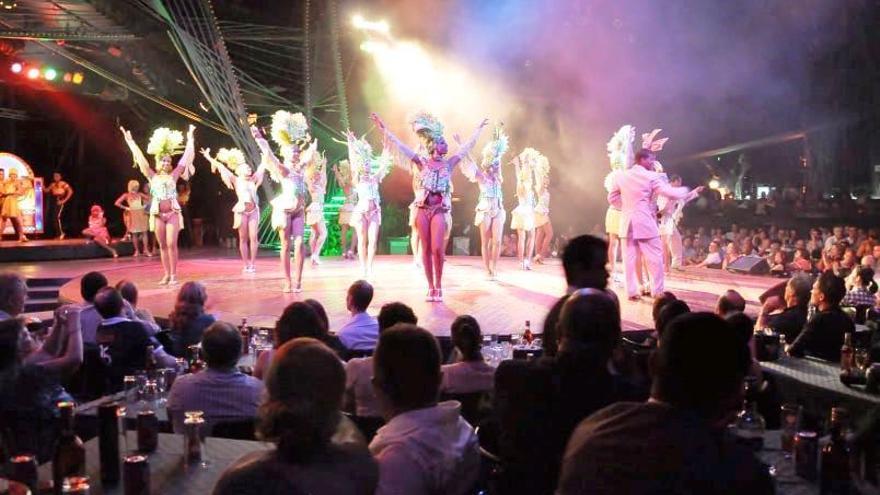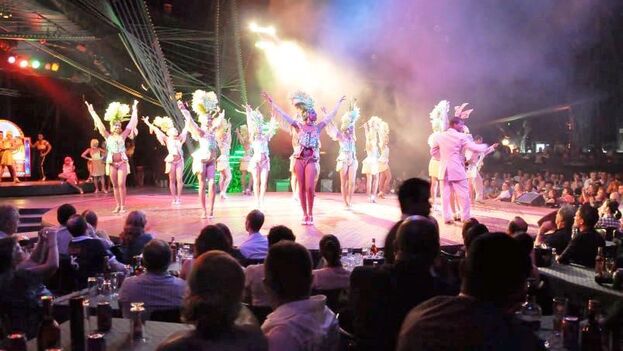
14ymedio, Natalia López Moya, Havana, 4 January 2024 — Twinkling lights, sculptural bodies and music. The propaganda about the Tropicana cabaret in Havana has barely changed in decades. The environment has changed and customers looking for a night of relaxation will have to overcome some obstacles, including the method of payment: a convoluted and frustrating mechanism that many see as a scam.
“They told us just to come and pay the entrance, but it is more complicated,” lamented an American this Saturday, at the entrance of Havana’s most famous cabaret. The man, who traveled to the island with a group that had previously toured several Cuban evangelical communities, found that entry to the “paradise under the stars” could only be paid with magnetic cards, not cash. And the magnetic card had to be one bought in Cuba, loaded with ‘freely convertible currency’ [MLC].*
A ticket to just enjoy the Tropicana show regularly ranges between $75 and $95, depending on whether it is standard or Premium. If dinner is included, it can cost up to $120 and, this Sunday, December 31, as a special New Year’s Eve offer, with several services included, each person had to pay $300 dollars with the promise of also enjoying a special presentation of the dancers.
At the suggestion of a Tropicana employee, one of the foreigners went to a nearby hotel and bought a ’hard currency’ card on which he deposited 800 dollars
“American cards do not work, so to enter they have to buy one in freely convertible currency [MLC]”, the employee at the Tropicana access checkpoint clarified to the group. With night already falling and temperatures cool for Havana, the last thing the anxious customers wanted was to delay their entry and postpone the first drink of rum to warm up their bodies.
Prepaid cards in Cuban ‘MLC’ are purchased at airports, hotels and the Island’s exchange offices known as ’Cadecas’. The cards can then be used to pay for hotel reservations, excursions, purchase of airline tickets, in sto


